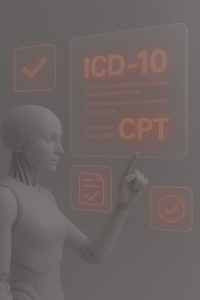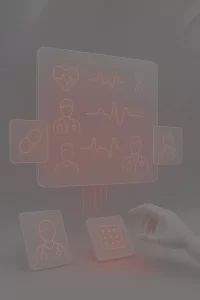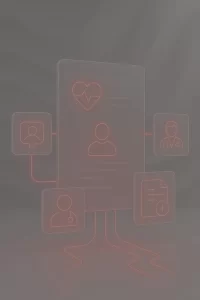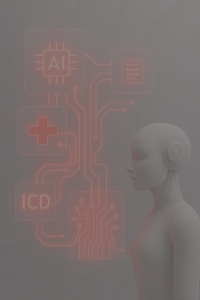Automatic ICD-10 and CPT Coding Services
Transform Medical Coding with Intelligent Automation
Healthcare providers struggle with complex medical coding processes that burden clinical staff, delay billing, and increase denial rates. Our automatic ICD-10 and CPT codes services offer a revolutionary approach to medical coding, enhancing accuracy, accelerating reimbursement cycles, and freeing clinicians to focus on patient care rather than administrative documentation.
Use Cases for Automatic ICD-10 and CPT Coding in Healthcare
Primary Care and Family Medicine
Streamline documentation for diverse conditions. Our automatic ICD-10 and CPT codes services efficiently handles the wide variety of diagnoses and procedures encountered in primary care—from preventive services and chronic disease management to acute conditions and procedures.
Emergency Department Coding
Accelerate ED reimbursement cycles. We provide rapid, accurate coding for emergency encounters—correctly identifying acuity levels, procedural interventions, and complex medical decision-making to ensure appropriate reimbursement.
Surgical Specialties
Capture comprehensive procedural coding. Our system accurately identifies component procedures, modifiers, and supporting diagnoses for surgical cases—ensuring full reimbursement for complex interventions while maintaining compliance.
Outpatient Diagnostics
Optimize diagnostic service coding. The solution correctly assigns ICD-10 codes that establish medical necessity for diagnostic procedures—reducing preauthorization challenges and technical denials.
Risk Adjustment and HCC Coding
Enhance value-based care performance. Our advanced system identifies and properly documents hierarchical condition categories and risk adjustment factors—improving quality metrics and appropriate risk-adjusted reimbursement.
Key Benefits of Automatic ICD-10 and CPT Codes Services
Enhanced Coding Accuracy
Reduce denials and audit exposure. Our solution applies consistent coding logic based on current guidelines—identifying appropriate code specificity, required documentation elements, and proper code sequencing to ensure compliant submission.
Accelerated Revenue Cycle
Eliminate coding bottlenecks. Our automatic ICD and CPT codes system processes documentation in real-time—reducing days in A/R, accelerating claim submissions, and improving cash flow across your organization.
Reduced Administrative Burden
Free clinical staff from coding tasks. Our intelligent system handles routine coding automatically—allowing providers to focus on patient care while reducing the need for extensive coding training and support.
Continuous Coding Updates
Stay current with evolving requirements. Our solution automatically incorporates quarterly ICD-10 updates, annual CPT changes, and evolving coding guidelines—ensuring your organization always applies the most current coding standards.
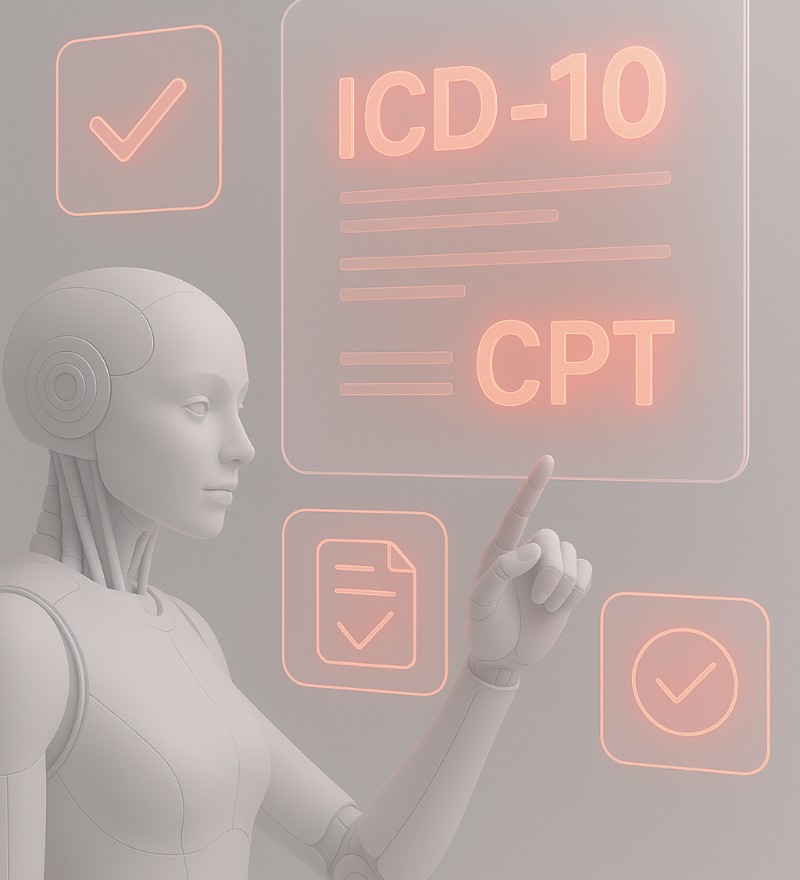
5 Steps To Implement Automatic ICD-10 and CPT Coding In Just 4-8 Weeks
Let’s Transform Your Medical Coding Process
See what automatic coding can do for your organization
COMPLIANCE
WITH HEALTHCARE STANDARDS








Our Other Healthcare Software Services
Custom software development
Get your unique telehealth, EHR/EMR systems with AI capabilities, and practice management software in modern UI. Use our expertise in SaMD-compliant development, medical imaging DICOM, or latest healthcare best practices and solutions.
Interoperability solutions
Leverage our expertise in cross-platform healthcare data interoperability, FHIR/HL7 integrations with Epic and other EHRs, SMART on FHIR development, healthcare data analytics on FHIR, and data conversion to FHIR.
Cloud services
We support healthcare organizations with cloud infrastructure security audits, optimization, automation, and maintenance. We will help you migrate heavy legacy software to the cloud.
Compliance services
We consult about HIPAA, SO13485, IEC62304, SOC2, FDA, and HITRUST. We suggest QMS setup and management, software verification, FDA-compliant technical documentation, and more.
FAQ AboutSPsoft Automatic ICD-10 and CPT Coding Services
How does automatic coding compare to manual coding processes?
Automatic ICD-10 and CPT codes services offer significant advantages over traditional manual coding approaches, particularly for organizations with high encounter volumes or coding backlogs. While manual coding relies heavily on coder interpretation and availability, our automatic system provides consistent, guideline-driven code assignment available 24/7. The system processes documentation instantly, eliminating the delay inherent in manual workflow queues. Our solution achieves accuracy rates exceeding 95% for routine encounters, with supervised coding recommended only for highly complex cases. The automated approach significantly reduces labor costs while accelerating the revenue cycle—many organizations report 30-50% reductions in coding-related A/R days. Most importantly, automatic coding eliminates the variability and subjective interpretation that often leads to compliance risks and denials in manual processes.
How does the system handle complex coding scenarios and edge cases?
Our automatic ICD and CPT codes system employs a sophisticated approach to complex scenarios. For straightforward cases, the system assigns codes with high confidence automatically. For more complex scenarios, the solution employs a tiered approach: cases meeting certain complexity thresholds are flagged for human review, with the system providing suggested codes and supporting documentation references. The system continuously learns from these reviewed cases, gradually expanding its capability to handle increasingly complex scenarios independently. For rare or highly specialized coding situations, the system identifies relevant coding guidelines and documentation elements to assist human coders in making appropriate determinations. This balanced approach ensures coding efficiency while maintaining accuracy for even the most challenging clinical scenarios.
How do you ensure coding accuracy and compliance with changing guidelines?
Compliance and accuracy are foundational to our automatic ICD-10 and CPT codes services. We maintain a dedicated team of certified coding specialists who continuously monitor official coding guidelines, quarterly updates, and industry best practices. These insights are translated into algorithm refinements and rule updates deployed through regular system updates. Our platform incorporates an extensive rules engine that evaluates code selections against current guidelines, medical necessity requirements, and documentation sufficiency. The system includes robust audit capabilities that identify potential compliance issues, documentation gaps, and opportunities for improvement. We provide comprehensive reporting on coding patterns, denial trends, and documentation quality to support ongoing compliance programs and continuous improvement initiatives.
How does the automatic coding solution integrate with existing EHR and billing systems?
Our ICD-10 and CPT services are designed for seamless integration with your existing healthcare IT ecosystem. We support multiple integration methods, including HL7, FHIR, API-based connections, and direct database integration where appropriate. For EHR integration, the system can be implemented as an embedded solution providing real-time coding suggestions during documentation, or as a post-documentation processing engine that analyzes completed notes. For revenue cycle systems, we offer integration points at various stages—from charge capture through claim submission and denial management. Our technical team collaborates closely with your IT department to determine the optimal integration approach tailored to your specific systems, technical environment, and workflow requirements. Most implementations achieve full integration within 4 to 6 weeks, with minimal disruption to existing operations.
How does the system handle specialty-specific coding requirements?
Our automatic coding solution features specialized modules for various clinical specialties, each incorporating the unique coding rules, documentation requirements, and clinical indicators relevant to that specific field. For surgical specialties, the system accurately identifies component procedures, modifiers, and supporting diagnoses. For medical specialties like cardiology, pulmonology, or neurology, the system recognizes specialty-specific diagnostic criteria and guidelines. The platform also accommodates specialty-specific documentation patterns—whether the narrative documentation of psychiatry, the procedural documentation of interventional specialties, or the comprehensive approach of primary care. During implementation, we configure the system specifically for your organization’s specialty mix, ensuring appropriate coding approaches for each clinical department while maintaining consistency in shared coding scenarios.
What kind of ROI can we expect from implementing automatic coding?
The financial return on implementing our ICD-10 and CPT codes services typically exceeds expectations across multiple dimensions. Most organizations achieve 30-50% reductions in coding-related labor costs, whether through reduced outsourced coding expenses or redeployment of internal resources to higher-value activities. Revenue improvements typically range from 5% to 12% through more accurate code capture, appropriate specificity, and reduced denials. Days in A/R usually decrease by 25-35% due to faster coding completion and cleaner initial claim submissions. Denial rates for coding-related issues typically drop by 40-60% within the first six months after implementation. When considering these combined financial benefits, most organizations achieve a complete return on investment (ROI) within 6-9 months of implementation. Our team provides comprehensive economic impact analysis during the assessment phase to project your specific expected returns based on your organization’s unique characteristics.
